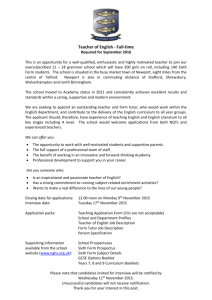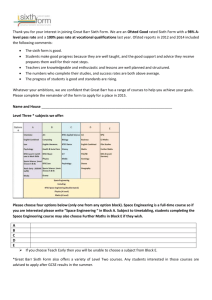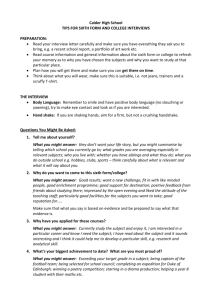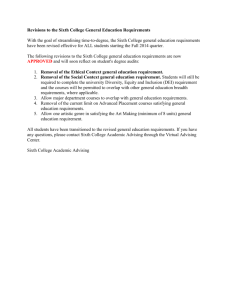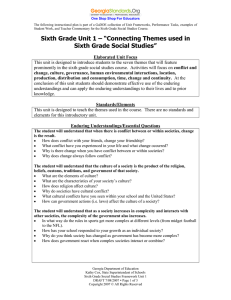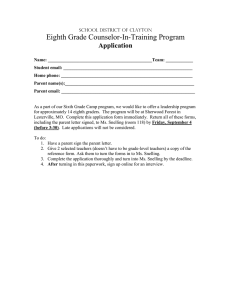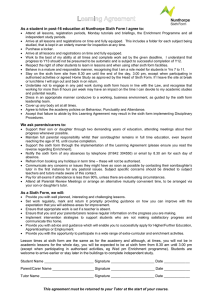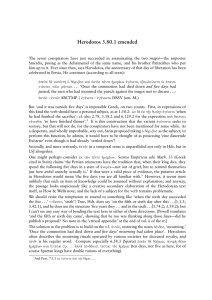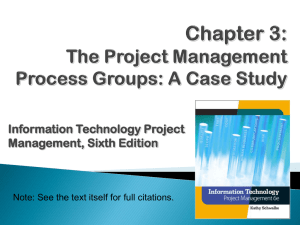Sixth grade Family Road Map for Social emotional skills & behavior
advertisement
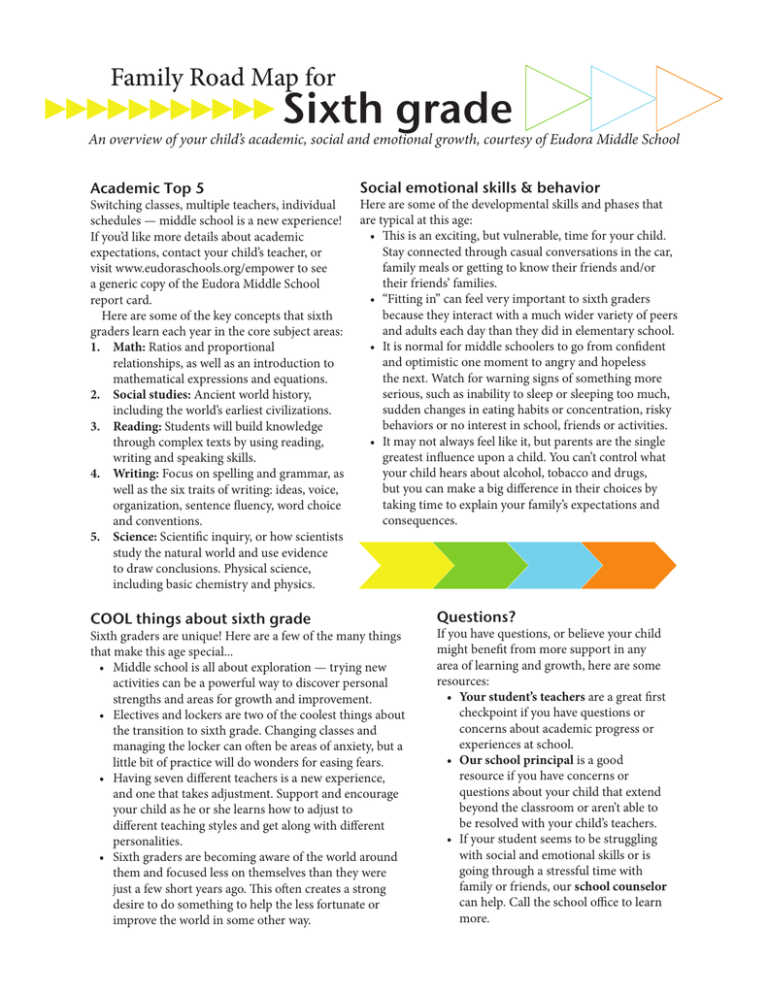
Family Road Map for Sixth grade An overview of your child’s academic, social and emotional growth, courtesy of Eudora Middle School Academic Top 5 Switching classes, multiple teachers, individual schedules — middle school is a new experience! If you’d like more details about academic expectations, contact your child’s teacher, or visit www.eudoraschools.org/empower to see a generic copy of the Eudora Middle School report card. Here are some of the key concepts that sixth graders learn each year in the core subject areas: 1. Math: Ratios and proportional relationships, as well as an introduction to mathematical expressions and equations. 2. Social studies: Ancient world history, including the world’s earliest civilizations. 3. Reading: Students will build knowledge through complex texts by using reading, writing and speaking skills. 4. Writing: Focus on spelling and grammar, as well as the six traits of writing: ideas, voice, organization, sentence fluency, word choice and conventions. 5. Science: Scientific inquiry, or how scientists study the natural world and use evidence to draw conclusions. Physical science, including basic chemistry and physics. COOL things about sixth grade Social emotional skills & behavior Here are some of the developmental skills and phases that are typical at this age: • This is an exciting, but vulnerable, time for your child. Stay connected through casual conversations in the car, family meals or getting to know their friends and/or their friends’ families. • “Fitting in” can feel very important to sixth graders because they interact with a much wider variety of peers and adults each day than they did in elementary school. • It is normal for middle schoolers to go from confident and optimistic one moment to angry and hopeless the next. Watch for warning signs of something more serious, such as inability to sleep or sleeping too much, sudden changes in eating habits or concentration, risky behaviors or no interest in school, friends or activities. • It may not always feel like it, but parents are the single greatest influence upon a child. You can’t control what your child hears about alcohol, tobacco and drugs, but you can make a big difference in their choices by taking time to explain your family’s expectations and consequences. Sixth graders are unique! Here are a few of the many things that make this age special... • Middle school is all about exploration — trying new activities can be a powerful way to discover personal strengths and areas for growth and improvement. • Electives and lockers are two of the coolest things about the transition to sixth grade. Changing classes and managing the locker can often be areas of anxiety, but a little bit of practice will do wonders for easing fears. • Having seven different teachers is a new experience, and one that takes adjustment. Support and encourage your child as he or she learns how to adjust to different teaching styles and get along with different personalities. • Sixth graders are becoming aware of the world around them and focused less on themselves than they were just a few short years ago. This often creates a strong desire to do something to help the less fortunate or improve the world in some other way. Questions? If you have questions, or believe your child might benefit from more support in any area of learning and growth, here are some resources: • Your student’s teachers are a great first checkpoint if you have questions or concerns about academic progress or experiences at school. • Our school principal is a good resource if you have concerns or questions about your child that extend beyond the classroom or aren’t able to be resolved with your child’s teachers. • If your student seems to be struggling with social and emotional skills or is going through a stressful time with family or friends, our school counselor can help. Call the school office to learn more.
